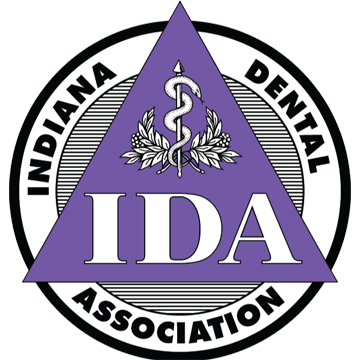3 Signs that you Need a Dental Crown

Among the many procedures that a dentist may use to restore and maintain a patient’s oral health is the installation of a dental crown. These are common, but not so common that everyone knows what they are, nor why they might be needed.
What, then, are dental crowns? And when will dentists recommend them?
What are dental crowns?
Simply put, dental crowns are coverings for a tooth. Other than a temporary one which might be put on in case of absolute emergency (and typically only until a permanent one can be made), a crown will be created in such a way as to mimic the tooth’s size, shape, and overall look.
Crowns can be made from a variety of materials, which vary in terms of their aesthetic appeal, strength and durability, and expense.
The most common of these materials are:
- Metal, such as gold, platinum, cobalt-chromium alloys, or nickel-chromium alloys. Crowns made of stainless steel do also exist, but they are usually used for children on non-permanent teeth.
- Porcelain ceramic
- Porcelain fused atop metal
- Zirconium dioxide
- Other materials can include resins and a Lithium Disilicate glass (known as E.MAX).
When are crowns needed?
There are many circumstances under which a dentist might recommend a crown to an adult. For example, in recent years it has become increasingly more common to use crowns to treat teeth which are so severely discolored that standard tooth whitening treatment is insufficient.
By and large, however, the situations under which crowns will be recommended can be lumped into three broad categories.
- Saving a tooth that has weakened or become misshapen
Over time, a tooth may become weakened. This can happen because of tooth-grinding (bruxism), or because of acid wear from conditions like acid reflux or Gastroesophageal reflux disease (GERD). Both alike will wear down the enamel and cause the tooth the be malformed. Since dentists almost always prefer to save a tooth rather than pull it or have it disintegrate, a crown may be proposed, which will restore the tooth to its natural shape and keep it from breaking.
- Saving a tooth that has become severely damaged
Teeth may be cracked or broken due to mishap in everyday life. Furthermore, certain kinds of dental procedures might put a tooth at risk. A large cavity might be filled, for example, but if the cavity (or cavities) are large enough, they might cause structural damage such that the tooth may fall into the danger of being lost.
Likewise, a root canal is sometimes necessary if an untreated cavity has allowed infection into the pulp and root of the tooth, causing an abscess. This unfortunate outcome not only endangers the tooth and jaw, but usually causes severe pain. The root canal will save the tooth and clear the jaw from infection, but it requires drilling into the tooth itself, which will weaken it significantly.
In all of these cases, crowns will keep the tooth from being lost, and, again, restore its shape and appearance.
- Teeth that are missing
In nearly every case, a dentist will do whatever he or she can to save a tooth. This is because missing teeth can lead to a whole host of other dental problems, and can even affect overall health. For this reason, dentists will also strenuously advocate that a tooth that has been lost be replaced.
One way this can be done is by means of a dental implant. This will involve drilling into the jawbone and putting in an abutment (a peg-like apparatus) into the socket where the missing tooth once was. Over top of this abutment a crown shaped like the original tooth is placed.
Implants work best for the loss of single teeth. However, another option for tooth replacement is a bridge, which works both for an individual lost tooth or two or more missing teeth, provided they are all adjacent to each other. A bridge works by means of attaching false replacement teeth to existing teeth, which function as anchors. To secure these “anchors” further, a crown will usually be put over them.
Dental crowns
The installation of crowns are an important technique dentists have at their disposal, both to help save teeth that are damaged and prevent their loss, and as part of the process to replace teeth which are already missing. Consultation with a dentist can always provide more information about them, and whether they are the right path for a patient’s dental needs.
Book Your Consultation
We are excited you found us and we hope you will take the first step to join our family.









